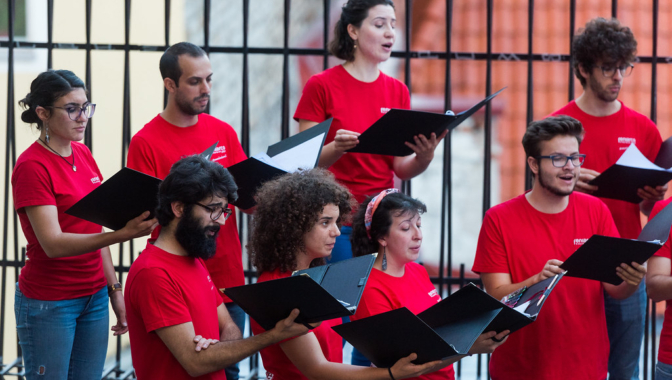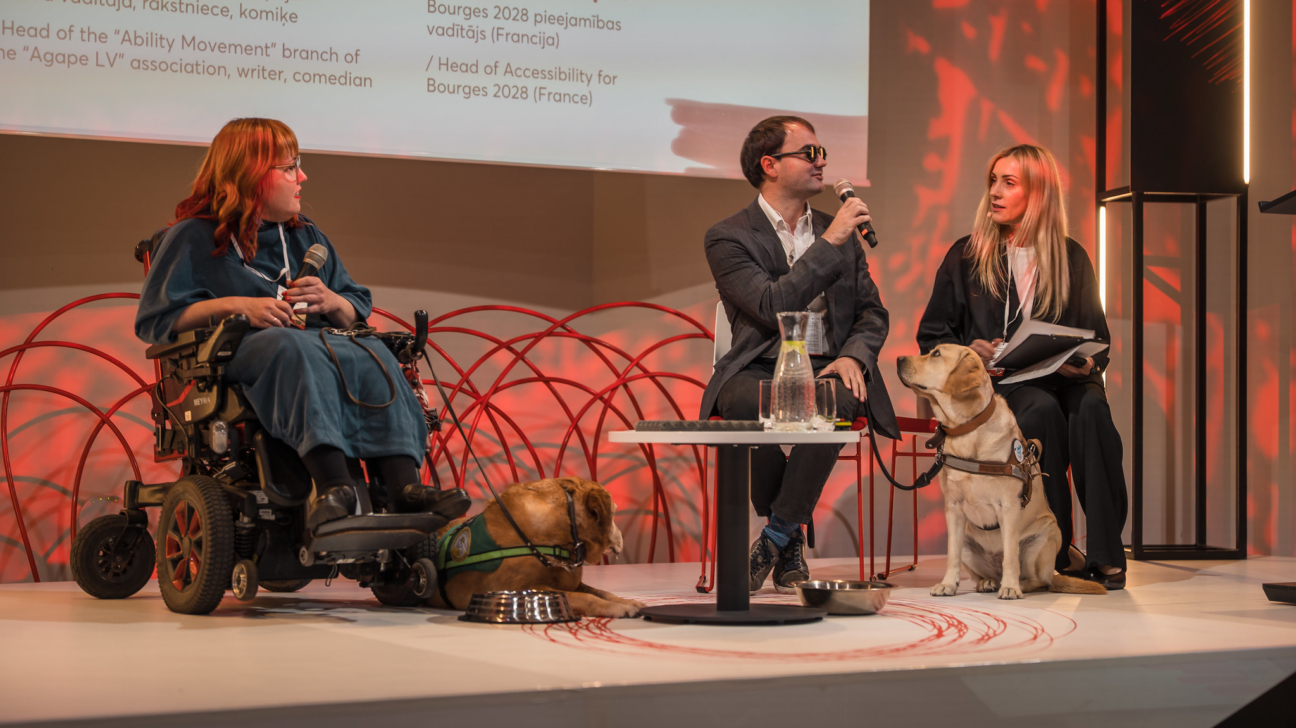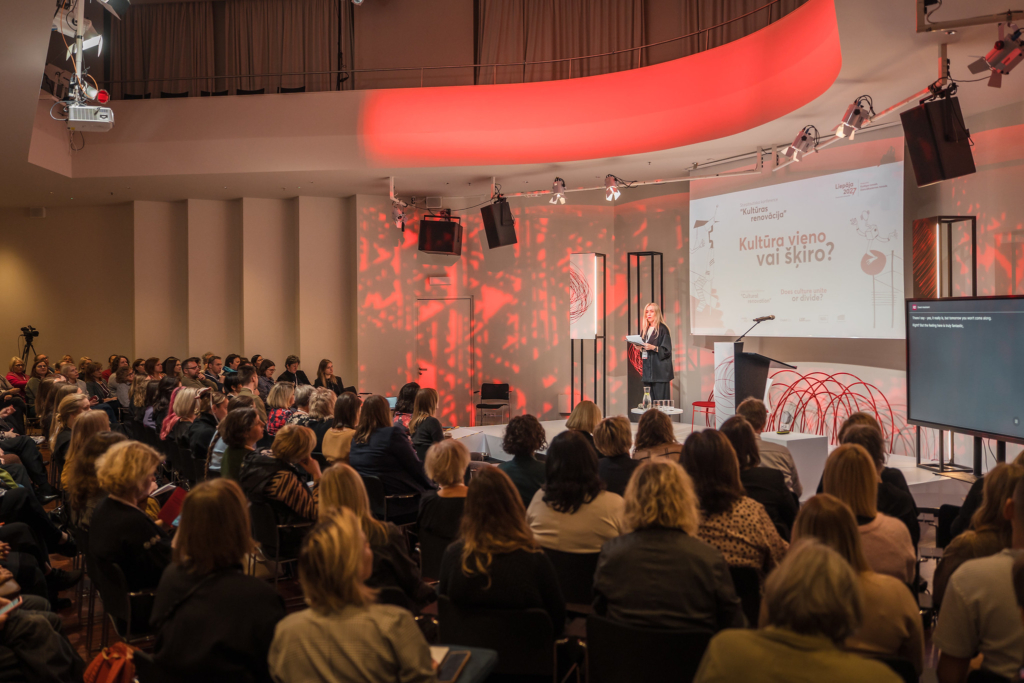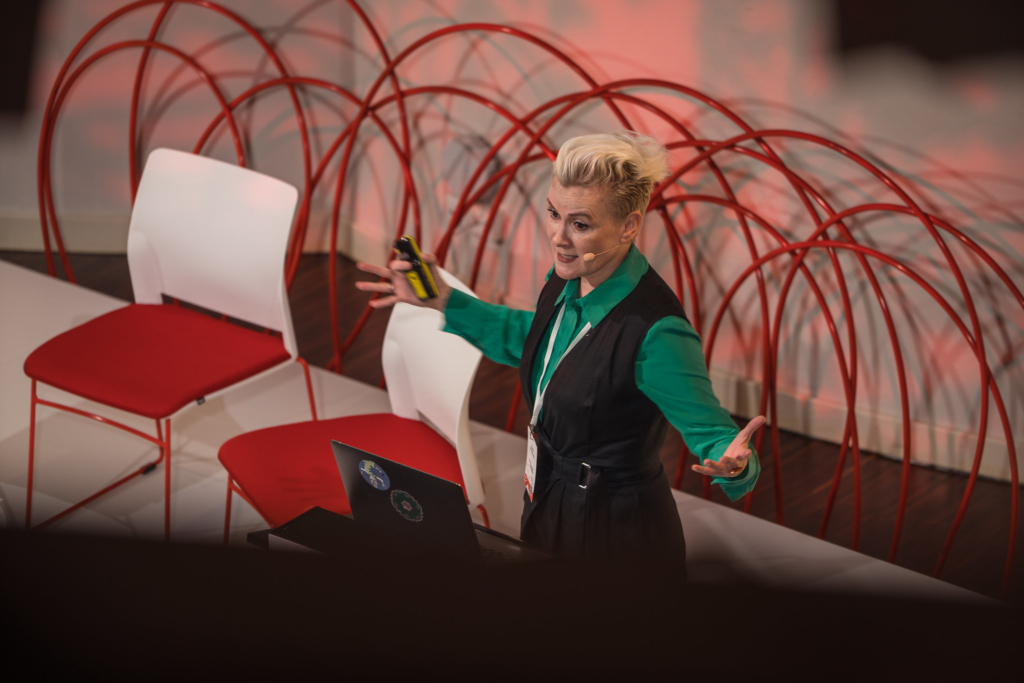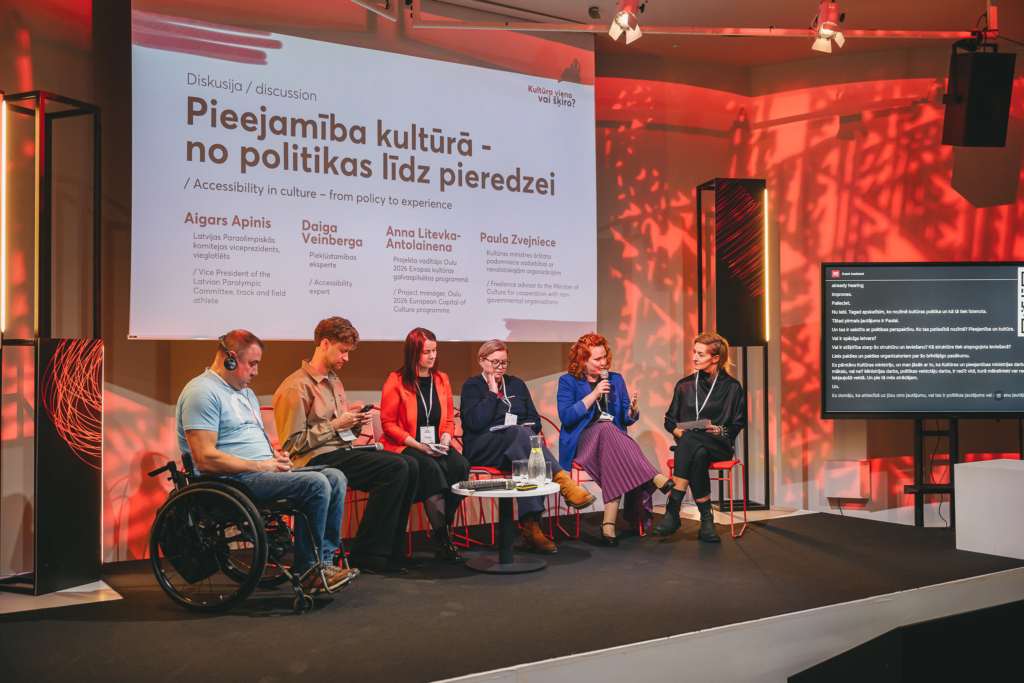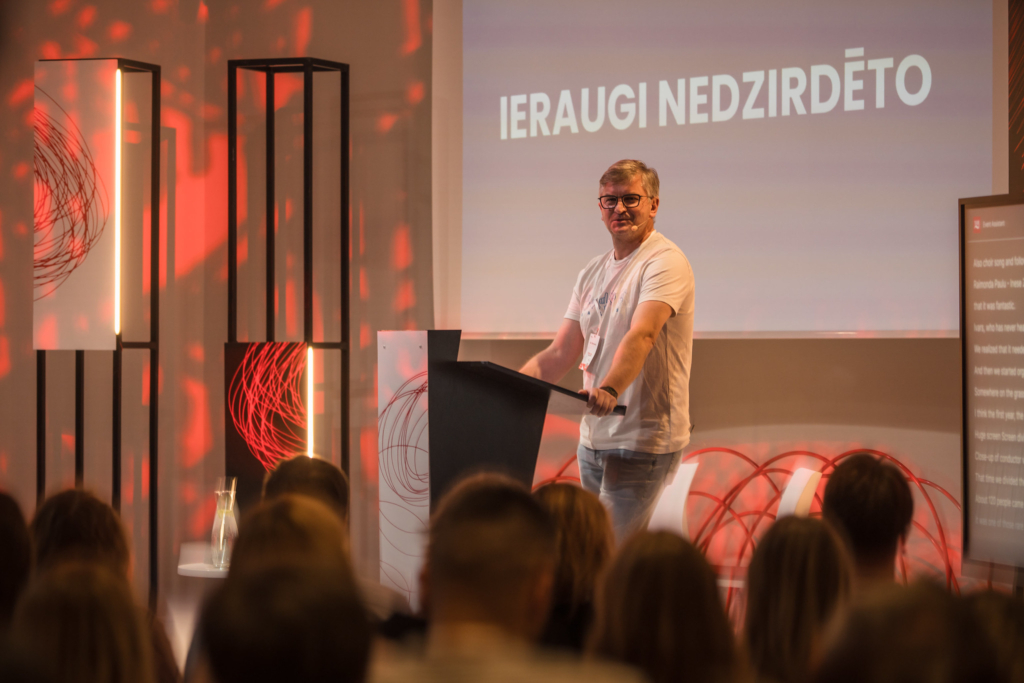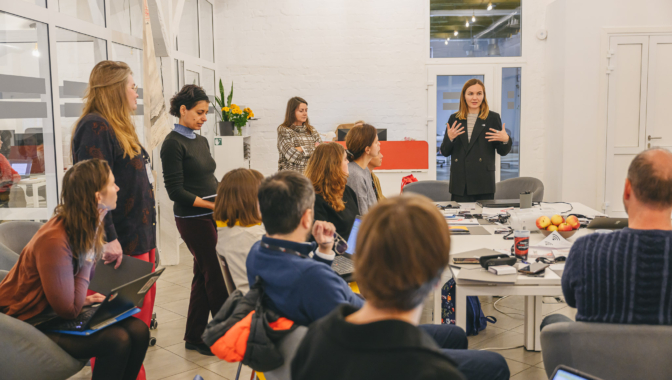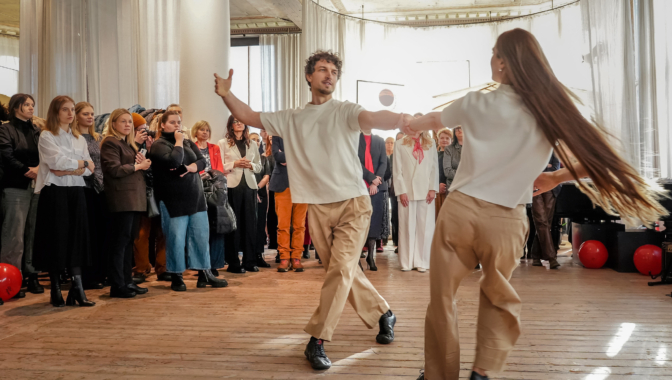On Wednesday, 22 October, the Great Amber Concert Hall in Liepāja hosted the international conference “Cultural Renovation”, organised by the Liepāja 2027 Foundation (Liepāja 2027).
Seeking answers to the question – does culture unite or divide? – this year’s gathering brought together culture professionals from Iceland, Sweden, Finland, France and Latvia to explore cultural accessibility and availability through talks, real-life experience stories, and hands-on workshops.
“At the heart of cultural renewal lies responsibility – our duty as organisers of cultural life and as human beings – to ensure that art and culture are open to everyone,” said Baiba Bartkeviča, Artistic Director of Liepāja 2027, opening the conference. “In an age that rushes forward at full speed, art has the power to slow us down – to listen, to notice, to act. True renovation begins when we stop seeing accessibility as a burden and start seeing it as an opportunity – to rethink how we create, share, and grow together”.
The first part of the conference featured Vigdís Jakobsdóttir, Cultural Project Manager at the Municipality of Kópavogur (Iceland) and former Artistic Director of the Reykjavík Arts Festival; Swedish choreographer Dalija Acin Thelander; Thibaut de Martimprey, Accessibility Manager for Bourges 2028 (France); Baiba Baikovska, Head of the Agape LV association’s Spēju kustība (Ability Movement) project; Timurs Tomsons, Director of the Great Amber Concert Hall; Ints Teterovskis, Director of the choir Balsis and implementer of the Balsis in Sign Language project; and Ivars Balodis, Head of the association Apeirons. The speakers turned to topics such as emotional accessibility, inclusive cultural offers for children with different needs, and the importance of equal participation in music, performing arts and other cultural processes.
“Accessibility isn’t a one-off task,” reflected Vigdís Jakobsdóttir. “It’s a continuous dialogue – a commitment to stay in tune with your audience. Art and culture aren’t privileges; they’re the common ground where we meet”.
Timurs Tomsons, Director of the Great Amber Concert Hall, emphasised that accessibility starts with leadership: “It begins with a decision – then grows into a shared strategy shaped together with accessibility experts and users. You don’t need to fix everything at once. Each year, focus on one group, one step closer to inclusion”.
In a discussion on accessibility for people with visual and mobility impairments, Baiba Baikovska, Head of Agape LV’s Spēju kustība project, reminded participants that accessibility is not just about physical infrastructure – it’s about autonomy: “A ramp is only truly accessible if people can use it on their own”.
Ivars Balodis, Head of Apeirons, drew a vivid parallel: “Accessibility is like tailoring a suit – it must be designed with respect and precision, monitored and refined. People with disabilities aren’t just consumers of culture; they are also its creators, volunteers, and storytellers.”
The second part of the day introduced Maksims Mihejevs, creator of the project The Invisible World; Marija Kožarina, representative of the association SocIntegra; director and actress Liena Šmukste; environmental accessibility expert and founder of Colorize Lība Bērziņa; and usability and accessibility expert Pēteris Jurčenko. Together, they explored sensory theatre, art for people with visual impairments, and the challenges of mental and digital accessibility.
Director and actress Liena Šmukste shared her personal connection to sensory theatre, growing up with blind grandparents, thus learning early on that theatre isn’t only what you see – it’s what you feel. “During performances, the audience’s eyes are closed; all senses awaken, and imagination becomes the brightest light in the room”, she said.
Lība Bērziņa, founder of Colorize, reminded the audience that one in four people in the European Union lives with some form of disability. Inclusion isn’t someone else’s story – it’s ours. In Latvia, 73% of people with disabilities are unemployed. That’s not just a number – it’s a silence we must fill with dialogue, understanding, and shared creation, she said.
The conference also featured a panel discussion, “Accessibility in Culture – From Policy to Experience”, moderated by journalist Kristīne Garklāva, with contributions from Aigars Apinis, Vice President of the Latvian Paralympic Committee and track-and-field athlete; accessibility expert Daiga Veinberga; Anna Litewka-Anttolainen, Project Manager at Oulu 2026 (Finland); and Paula Zvejniece, freelance advisor to the Minister of Culture on cooperation with non-governmental organisations.
The discussion concluded that an inclusive cultural environment can only be built through cooperation – a dialogue between policymakers, experts and communities. Daiga Veinberga underlined that inclusivity should begin in early education: “It must be as natural as part of a school’s environment as safety.” Paralympic champion Aigars Apinis added: “Through the I’mPossible project, we’re inviting schools to introduce students to the values of the Paralympic movement – empathy, inclusion, and mutual respect.”
In the afternoon, participants joined practical workshops led by Anna Litewka-Anttolainen, Irīna Meļņika, Head of the Easy Language Agency, and Pēteris Jurčenko. They discussed personal perspectives on accessibility, demonstrated how simplified language can make communication more effective, and introduced free digital tools that make online environments more inclusive. The day concluded with a performance of Bezgalīgais ritums (Endless Course) by Cēsis Small Theatre, directed by Liena Šmukste, offering participants a sensory theatre experience where the audience’s imagination took centre stage.
The conference was organised by the Liepāja 2027 Foundation. The event was co-financed by the Liepāja City Municipality, the South Kurzeme Municipality, the Kuldīga Municipality, the Latvian Ministry of Culture, and the CreArt project, with support from the French Institute in Latvia and Lux Express, the largest bus transport company in the Baltic region.
For more information, please contact:
Diāna Galuza
Foundation Liepāja 2027
Cultural Education Project Manager
Phone: +371 27 878 919
E-mail: diana.galuza@liepaja2027.lv
